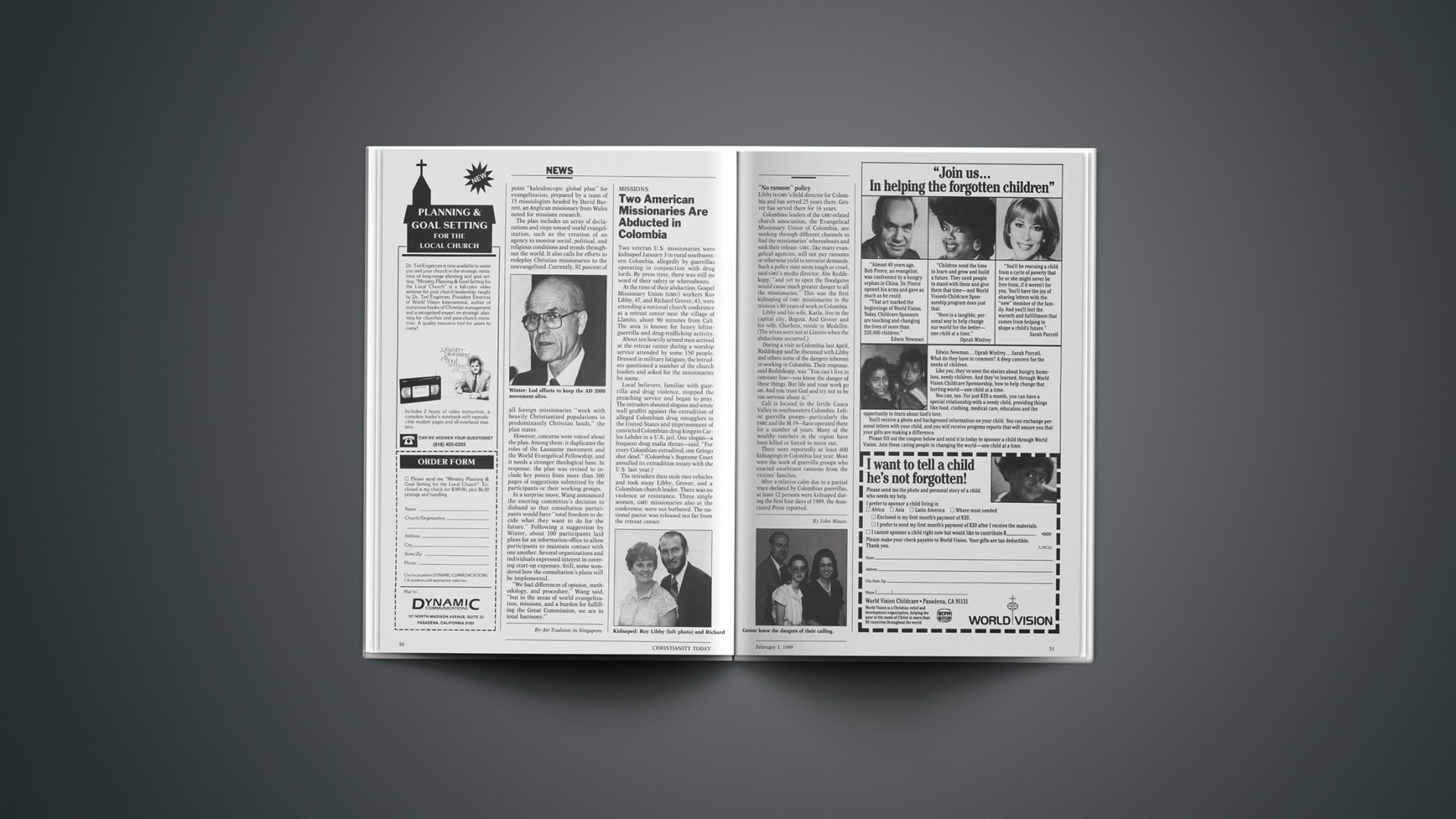Surprisingly difficult religious concerns stalled the passage of any child-care bill during last year’s Congress, and as a new session convened last month, the issue got rolling again.
The need for federal legislation springs from the sheer magnitude of the issue. Until recently, most preschool children in America were cared for at home. That has now changed, owing to the increasing number of working mothers and the breakdown of the extended family.
Where less than one-third of all married women with young children worked outside the home in 1975, now well over half do. More than 10 million children under the age of six have mothers in the labor force, yet there are only about 2.5 million licensed day-care slots. These slots are getting increasingly expensive, exceeding an annual average cost of $3,000 per child.
These developments spawned three dozen different day-care bills in Congress during 1988. The leading Democratic proposal, called the Act for Better Child Care Services (or the ABC bill), was sponsored by Christopher Dodd of Connecticut in the Senate and Dale Kildee of Michigan in the House of Representatives. It attracted over 200 cosponsors and endorsements from 130 national organizations, including the National Council of Churches and the National Education Association. The bill earmarked $2.5 billion for new federal day-care spending, and appeared to be on a safe passage through Congress when nagging church-state issues arose.
Nearly 40 percent of children in day care go to church related centers, and some questioned whether those centers could receive government aid. The original ABC bill dealt with this issue essentially by requiring all centers receiving federal funds to be nonreligious. Efforts to include church-operated centers in the funding inflamed groups such as the American Civil Liberties Union (ACLU) and Americans United for Separation of Church and State, which oppose any government aid for church-related day-care centers. Despite a push in July from Democratic presidential candidate Jesse Jackson, momentum for the measure faded.
Republicans, who had already questioned the high cost of the ABC bill, offered other solutions to the church-state problem, primarily in the form of tax breaks for parents sending their children to secular or religious centers. Rep. Paul Henry of Michigan proposed channeling federal funds through parents by “vouchers” redeemable at certain public and private centers.
Responding to concerns that federally funded day-care centers discourage mothers from caring for their children at home, the Republican presidential nominee, George Bush, endorsed a different approach. His plan calls for a refundable tax credit of $1,000 for each preschool child in low-income families with at least one working parent.
With Bush now President, Democrats in firm control of Congress, and no solution to church-state concerns in sight, enactment of federal day-care legislation appears further off than ever.
By Ed Larson.










